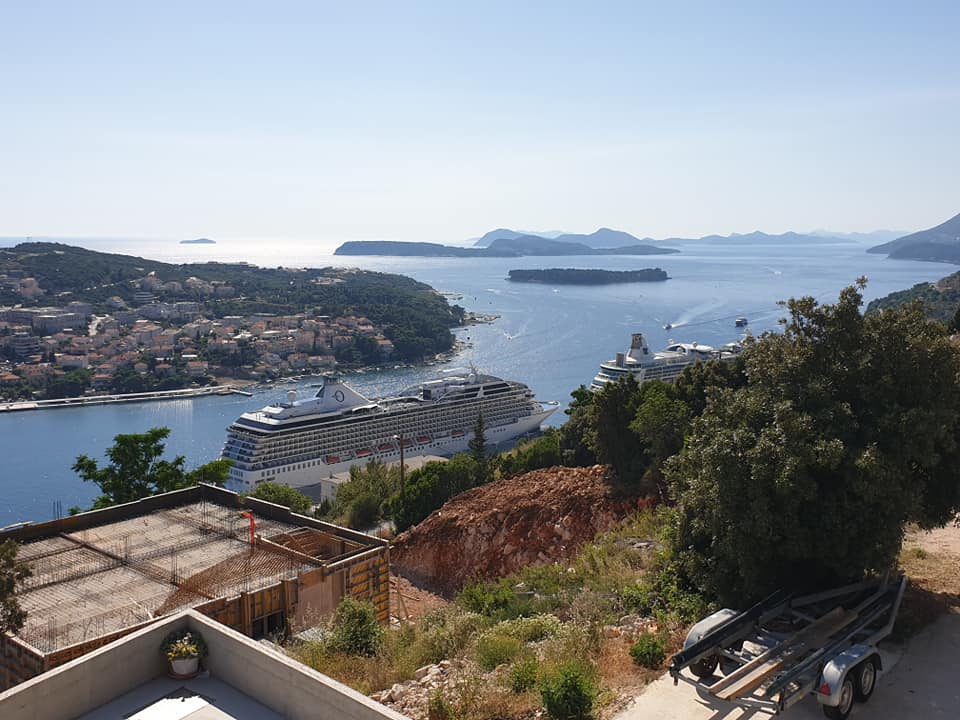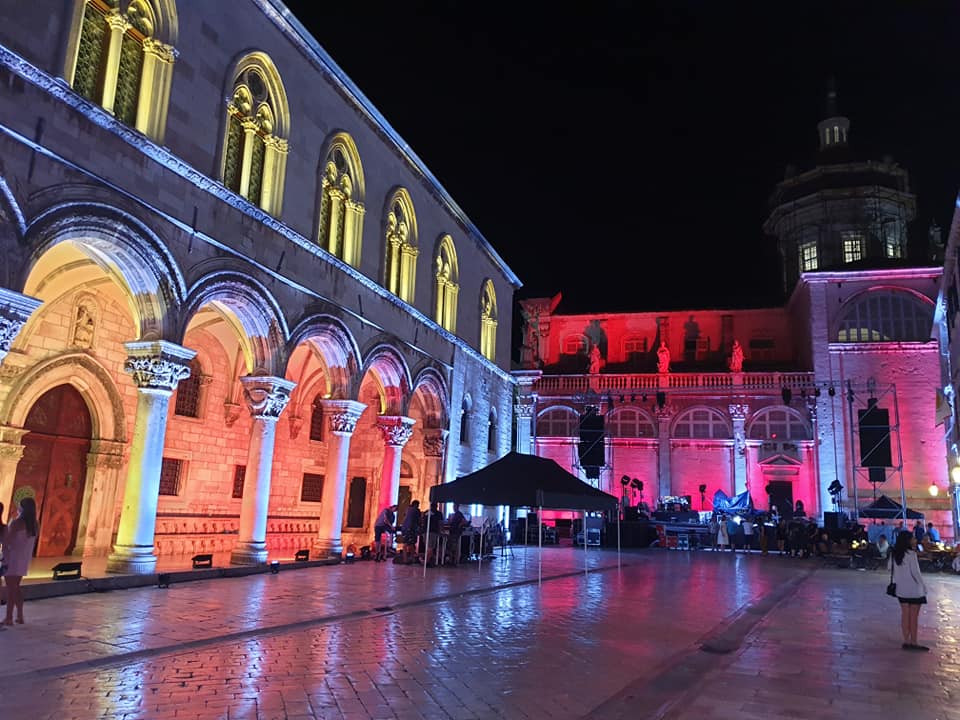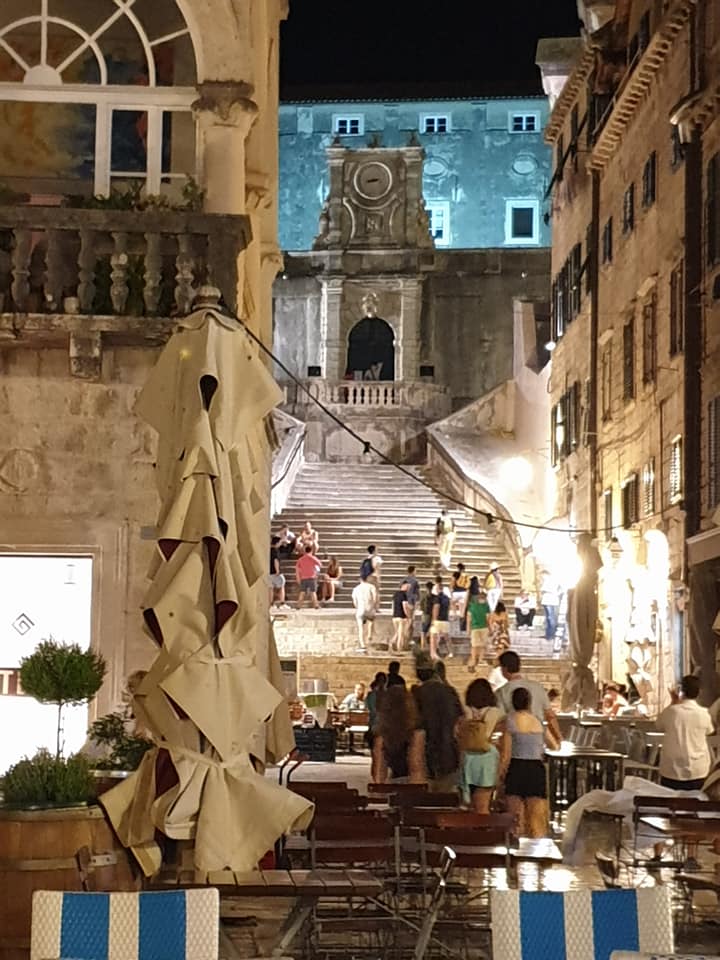July 2, 2019 - The season of overtourism is in full swing in cities such as Venice and Dubrovnik. Some simple steps to improve the situation.
Overtourism is a little like the climate crisis. Everyone can see it happening (unless you are the Trumpster). Everyone can see it is getting worse and knows it will eventually kill the goose that lays the golden eggs. And nobody in authority is doing anything about it. And with so many people feeling comfortable and making money from it, there is little appetite for change from those in the tourism business because the money - for now - is good.
Would a tourism business support a move which might reduce overtourism a little but severely impact their business? In reality, there are exceptions, such as the laudable decision by Secret Dalmatia recently to refuse all future tours from cruise ship passengers. The move is not going to save the planet on its own and it will impact the agency's bottom line considerably, but a rare and commendable example of one small business making a stand. Most tourist businesses would rather protect their bottom line, which is understandable.

(Two cruise ships in Dubrovnik on Sunday)
It is the same with the climate crisis. A recent New York Times article, If Seeing the World Helps Ruin It, Should We Stay at Home?, could not put the issue more firmly in the locker of personal responsibility of each and every one of us:
Each additional metric ton of carbon dioxide or its equivalent — your share of the emissions on a cross-country flight one-way from New York to Los Angeles — shrinks the summer sea ice cover by 3 square meters, or 32 square feet, the authors, Dirk Notz and Julienne Stroeve, found.
In February, my family of three flew from New York to Miami for what seemed like a pretty modest winter vacation. An online carbon calculator tells me that our seats generated the equivalent of 2.4 metric tons of carbon dioxide.
Throw in another quarter-ton for the 600 miles of driving we squeezed in and a bit for the snorkeling trip and the heated pool at the funky trailer-park Airbnb, and the bill comes to about 90 square feet of Arctic ice, an area about the size of a pickup truck.
So now you can calculate how much you personally are contributing to the crisis, and there will be some who will react to these facts and not take that flight, but the majority will continue in their own short-term comfort zone. Our family holiday on the other side of the world is not going to make any REAL difference, surely?
And so, a little like climate change, the appetite to meaningfully tackle the problem of overtourism is weak. And yet if we don't, there will be no meaningful tourism experience in some of these destinations in just a few years. And please don't think I am preaching, I am the same as the majority.

I have spent the last three weeks travelling around Croatia on assignments with TCN and family holidays. I have been to Varazdin, Zagreb, Zadar, Zut on Kornati, Split, Hvar, Korcula, Dubrovnik and currently in Montenegro. I have seen some truly divine places (Zut, Stari Grad and Korcula Town stand out) and some true horror shows, and the bigger Dalmatian cities of Dubrovnik and Split are already full. Too full, especially during the days when the numbers are swelled by day trippers and cruise ship passengers. It is simply not sustainable.
It is often said here that the locals would prefer it if the tourists sent the money and stayed at home, and while there might be an element of truth in that in some cases, what is happening increasingly is quite the opposite - tourists are coming and leaving their money at home. Day-trippers bringing their own sandwiches and water on day trips walking around top destinations without spending a penny (unless using the toilets). While they have a great cheap day out, their presence does little for the destination and adds to the overtourism issue with no benefit to the destination. A little like taking that family flight around the world and the climate crisis.
The view from Venice, from an interesting article from Responsible Travel on the subject.
Of the 20 million people who come to Venice each year, only half sleep here, which is why hotel stays have dropped by two thirds over the past 25 years. Many have poured off a cruise ship – on some days as many as 44,000 cruise passengers come to the city – or are on a whirlwind tour of Italy. Some stay for just a few hours, see little, buy a few trinkets and leave. They bring no economic benefit to the city in this way.
One aspect of tourism which is often overlooked is that many destinations are also living communities, where people live and work, and not necessarily in tourism. Tourism inevitably means compromise in a community - higher rents, less parking, more queues etc, and successful tourism works if the balance of tourism intrusion is matched by economic benefit - at least in my opinion. So if you have X number of tourists who are spending well and not upsetting the daily harmony very much, then you have a happy balance. If you have X number of tourists multiplied by three, many of whom are not spending, you have more than a small problem.
One Dubrovnik shop owner who sells jewelry told me this week that their business last year made more money in May and October than it did in either July or August. Crazy. So not only do the locals have to put up with the negative aspects of too many people in their community, it would appear - in some cases at least - that not only are they not benefitting from the increased numbers, but it is also hitting their bottom line. For the higher spending tourists are staying away from Dubrovnik in the peak season because it is too full.
Another business owner near the cable car (which started working again a couple of days ago) said that close to sunset, the number of visitors swells, as the view from the top is one of Dubrovnik's stated Instragrammable spots. There are several around the city and a growing number of visitors seemingly have this on their list of the only thing to do in Dubrovnik. If it is on Instagram, it happened. Never mind trying to experience the destination in any greater depth. Apart from the cable car ticket necessary for that perfect selfie, they are not providing anything except taking up oxygen.

So what can be done to stop this overtourism and restore that balance between tourists and the community, and how to reduce the number of tourists?
The simple solution, of course, would be to ban all cruise ships and day trip buses, and you would probably solve the problem overnight. I am not advocating that, although a reduction in both would be a welcome step in the right direction. But how to encourage those visiting Dubrovnik to spend money and deter those who have no intention of doing so not to make the journey? I believe there are two simple ways which are fair and which would reduce the numbers considerably and help restore the community/tourist equilibrium.
The easiest way to effect the change would be through a smart voucher system. Entrance to the old town is only permitted if you are staying for a minimum of one night in Dubrovnik (cash into local pockets as well as an extended experience of the town after those Instagram moments), or by buying a smart voucher to the value of 50-100 euro per person. The exact number should be defined by someone cleverer than me. Locals are free. If the combined amount is too much for a family, come for a night instead and get the voucher that way. Cruise ships can build the voucher price into their overall price and ensure their passengers get the app. Any unspent money goes to the preservation of tourism sites, or similar.
Businesses in the old town are hooked up to the smart voucher and tourists can pay for their drinks and souvenirs via the voucher system, and the system then reimburses the individual business. That way, every tourist to the old town will spend money with local businesses, and those who are not prepared to do so do not come. Less tourists, more revenue, less overtourism.
Is it better to have 10,000 tourists a day spending 10 euro, or 1000 tourists spending 100, or 100 spending 1000 euro? Dubrovnik is a top, top quality destination which should be having an offer to match that. Rather than the ubiquitous cheap souvenir shops with cheap Chinese tat, increase the spend of the visitor by increasing the value of the offer.
But how will this work in practice? Setting up ticket offices and checking tickets to enter a living city would be a nightmare and cause lots of congestion. Thankfully (at least in this case), we live in the digital AI world, where technology can assist. I am not a techie, but someone smarter than me could make the following happen I am sure:
Vouchers are bought via an app (so no queues). Locals register for the app and are not charged. As tourists enter the old town, the system will notify the officials by the three entrances to the old town, and anyone entering without that notification will be politely stopped and asked to buy the voucher. Perhaps some targeted social media campaign with the threat of fines for entering without the voucher would be a good deterrent.
People with more experience in these things will be able to refine the idea in a more practical solution, but I don't see a better way to deal with overtourism than this without outright banning of things like cruise ships. Or does someone have a better plan, in which case leave in the comments below? It is an important discussion.
The other overtourism issue which is gaining increasing attention is the Airbnb-isation of cities and top tourist areas. Again, there is a simple solution where technology can assist, but one which will not be popular in some quarters. Simply limit the percentage of private accommodation which can be advertised on sites like Airbnb in certain areas. 10% in the city centre, for example. Controlling that by checking the online lists would be simple. It would require some legal work and the cooperation of the likes of Airbnb and Booking.com, but if we are all willing to work on the issues, they are solvable.
If there is enough will.


